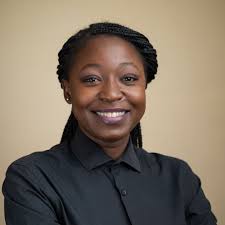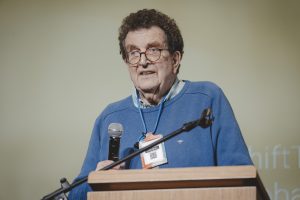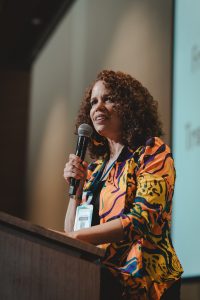Reflections from the #ShiftThePower Global Summit
12 Feb 2024
This blog originally appeared in Alliance magazine’s special feature on the #ShiftThePower Global Summit.

Shelly Satuku, Program Coordinator at the SIVIO Institute & 2023 #ShiftThePower Fellow
In 2021 I recall embarking on a project on community foundations in Zimbabwe with the SIVIO Institute. The project was one of the most exciting works I have done at the Institute as it opened my mind to appreciate the work that grassroots organizations do.
I had to be acquainted with the work of the GFCF, which shaped my understanding. I started following the discussions around the #ShiftThePower movement and Jenny Hodgson and Barry Knight’s work inspired me a lot over the years. It was such an exciting honour to become one of the 2023 #ShiftThePower Fellows. I anticipated the #RoadToBogotá, I looked forward to the rich discussions, and I was appeased.
On the first day Jenny delivered a captivating speech which brought to light the journey of the #ShiftThePower movement. As a person interested in statistics and evidence-based arguments, she provided the compelling need for shifting power. She stated that in 2016 there was a realization from international humanitarian donors that 97% of aid was channeled towards international organizations while only 3% went to local organizations – yet they are at the forefront of mitigating challenges that confront humanity. A commitment was then made to increase humanitarian funding to local organizations to 25% but since COVID-19, the funding has in fact decreased from the deliberated 3%. Numbers do tell a story…she emphasized the need for collective power to tilt the needle in funding systems. She highlighted the need to confront traditional funding systems in place. There is need for building networks and working together to exercise movement generosity and build the movement needed that can confront the imbalances that exist in aid.
One of the breakaway sessions I joined was on “Building collective dreams and strategies for safe communities.” It had many nuggets, for instance that it is imperative for communities to define what safe communities are to them and that donors should co-create programmes/projects with communities. Another interesting point was on mind-set shift, how to get rid of the “donor dependency syndrome” which hampers efforts for confronting power and leads to mission drift of some local organizations. It is evident that grassroots organizations already know what to do and the COVID-19 pandemic (amongst other incidences) showed who rapidly responds to societal challenges. There is need for the realization of the essence of the power of trust, relationship building, dignity and recognizing the different resources that communities have in changing the narrative of aid and development.
On the last day, Barry Knight spoke about the importance of data in the #ShiftThePower movement, siting instances where data has driven significant change. He highlighted that in 2009, the GFCF adopted twenty community philanthropy indicators which look systematically at what community philanthropy is – these were derived from the work of local organizations. Thirteen of the indicators were corelated with the #ShiftThePower movement. In conclusion, Barry emphasized the need to change measurement approaches to community philanthropy. The lightning talk showed the essence of data-driven decisions. The #ShiftThePower movement has shown leadership in, and calls for, the adoption of the same.
The Summit proceedings introduced me to an invigorating way of convening which stirs great energies in the room. Wellness was one of the things that was also emphasized, with Kelly Bates bringing participants to the appreciation of love for one another and promotion of wellness. The organizers did a splendid job in ensuring a balance between engagement and wellness throughout the conference.
By: Shelly Satuku, Program Coordinator at the SIVIO Institute and 2023 #ShiftThePower Fellow





